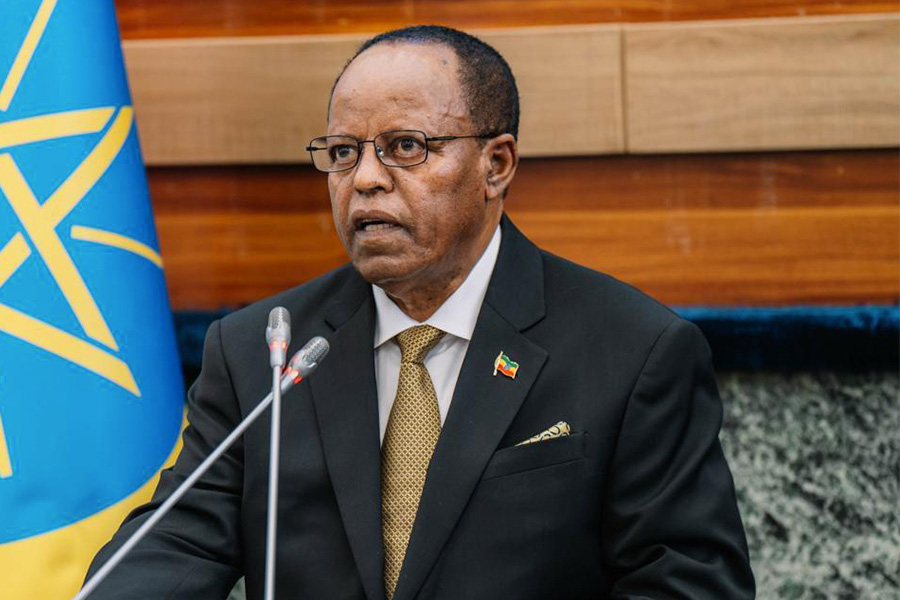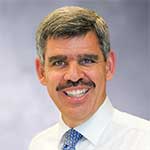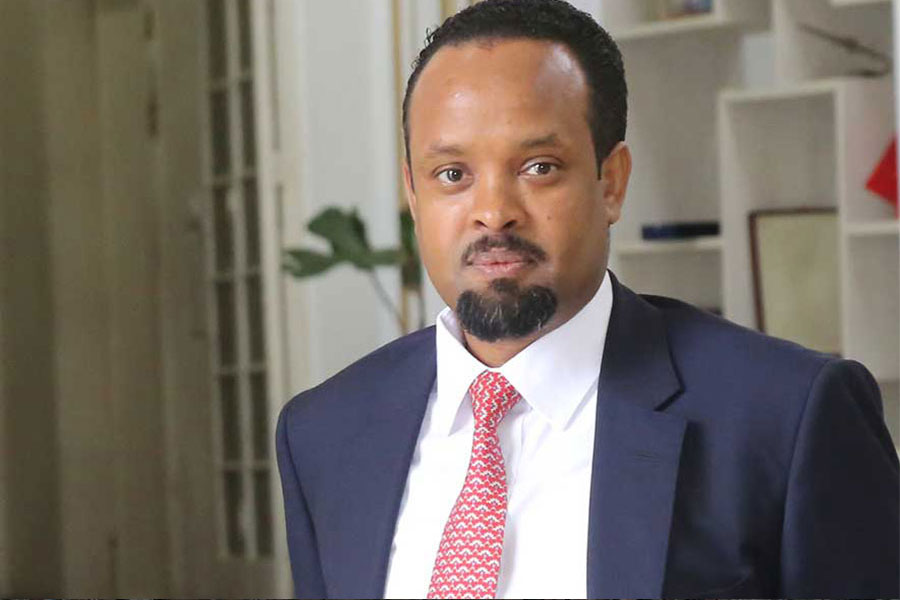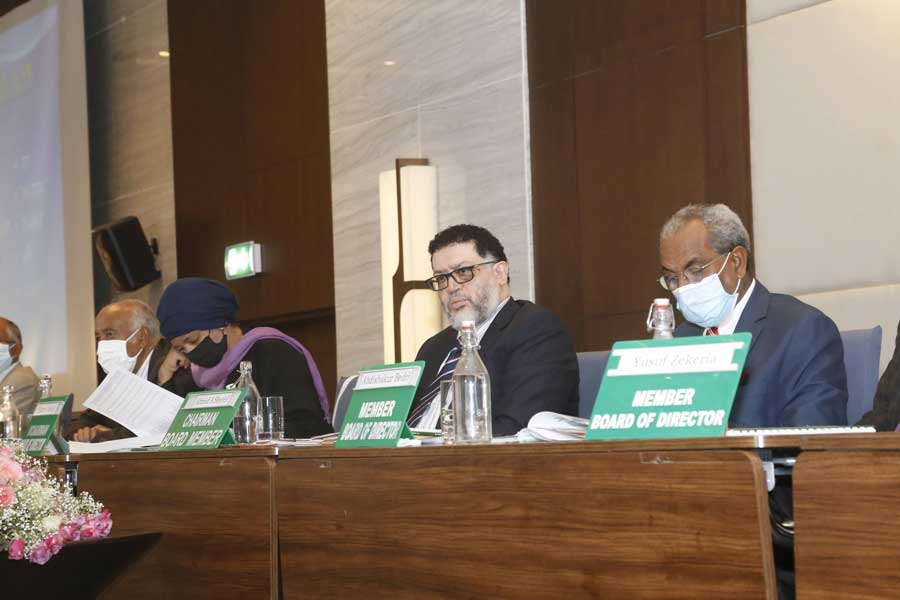
Apr 30 , 2022
By Mohamed A. El-Erian
The International Monetary Fund’s (IMF) significant downward revision to its 2022 World Economic Outlook, just one quarter into the calendar year, has generated headlines and hand-wringing around the world. But no less important is the dour forecast for 2023, which implies a broader crisis of prevailing growth models, writes Mohamed A. El-Erian, president of Queens’ College at the University of Cambridge.
The International Monetary Fund’s revised World Economic Outlook (WEO) is sobering. It is rare for the organisation to revise down sharply its projections for economic growth just one quarter into the calendar year. Yet in this case, it has done so for 86pc of its 190 member countries, resulting in a decline of almost one percentage point in global growth for 2022 – from 4.4pc to 3.6pc. Moreover, this forecast is accompanied by a significant increase in projected inflation, and all this bad news is packaged in a wrapping of deeper uncertainty. There is a downward bias in the balance of risks, and inequality is expected to worsen both within and across countries.
The WEO revision is attracting a great deal of media attention. The focus, understandably, is on the relatively large size of the revisions for the year, most of which are associated with the detrimental economic effects of Russia’s invasion of Ukraine. The war has disrupted the supply of corn, gas, metals, oil, and wheat, as well as pushing up the price of critical inputs such as fertiliser (which is made from natural gas). These developments have prompted warnings of a looming global food crisis and a severe increase in world hunger. Given the scale of the disruptions, it would not surprise me if the IMF issued a further downward revision to its growth projections – particularly for Europe – later this year.
But as important as these 2022 effects are, especially when it comes to the impact on vulnerable segments of the population and fragile countries, we also must pay attention to the IMF’s 2023 outlook. The projection for next year points to a medium-term problem that is no less important: The lost potency of growth models worldwide. The IMF does not expect its significant downward revision in global economic growth for 2022 to be offset in 2023. Instead, it has lowered its forecast for next year from 3.8pc to 3.6pc, with those revisions applying to both advanced and developing economies.
The implication is that the world’s economic engines are sputtering. This problem is especially worrisome in such a fluid operating environment, because it means that the prevailing growth models are not up to the task of pulling economies through unanticipated negative shocks. Making matters worse, the same models have also failed to maintain a decent level of inclusive growth during periods of less stress.
Three major secular developments are to blame for the tepid outlook: The changing nature of globalisation; the prolonged reliance on artificial growth boosters; and the long-term failure to invest in the sources of sustained growth.
Economic and financial globalisation have been evolving in ways that make it more difficult for national economies to leverage international trade and foreign direct investment for domestic growth. While the pandemic raised questions about the proliferation and potential vulnerabilities of “just-in-time” cross-border supply chains, it is worth recalling that trade and investment restrictions were increasing well before COVID-19 emerged. The US-China trade war featured the return of high tariffs and other protectionist measures that have generated far-reaching knock-on effects throughout the global economy.
Moreover, these developments have come at a time when many countries face tighter policy constraints. A return to conventional and unconventional monetary-policy stimulus is now precluded by high and persistent inflation. As the IMF notes, this new environment confronts central banks with very delicate and problematic policy tradeoffs, and it exposes the real economy to the potential vagaries of financial-market volatility.
Although the scope for fiscal action is less limited than it is for monetary measures, it is not well distributed among countries. While governments should use the firepower they have to protect the most vulnerable segments of their populations, some already face troubling debt levels.
These developments coincide with a period of low productivity growth in many countries, which is a function of past and persistent failures to invest in the drivers of genuine growth, including physical infrastructure and human capital.
The IMF’s report offers an important reminder to policymakers that they need to focus much more attention on generating innovation, improving productivity, and strengthening the other drivers of robust, inclusive economic growth. Failure to do so will make the risk of medium-term growth stagnation uncomfortably high. In a world that is already subject to considerable climate, economic, financial, institutional, political and social challenges, that is not a scenario we can afford.
PUBLISHED ON
Apr 30,2022 [ VOL
23 , NO
1148]


Delicate Number | Apr 26,2025

Fortune News | Jun 10,2023

Editorial | Apr 15,2023

Commentaries | Jan 31,2021

Fortune News | Mar 13,2021

Viewpoints | Aug 03,2024

Fortune News | Feb 16,2019

Commentaries | May 18,2024

Viewpoints | Apr 22,2023

Viewpoints | Dec 21,2019

Photo Gallery | 170321 Views | May 06,2019

Photo Gallery | 160560 Views | Apr 26,2019

Photo Gallery | 150190 Views | Oct 06,2021

My Opinion | 136242 Views | Aug 14,2021





Dec 22 , 2024 . By TIZITA SHEWAFERAW
Charged with transforming colossal state-owned enterprises into modern and competitiv...

Aug 18 , 2024 . By AKSAH ITALO
Although predictable Yonas Zerihun's job in the ride-hailing service is not immune to...

Jul 28 , 2024 . By TIZITA SHEWAFERAW
Unhabitual, perhaps too many, Samuel Gebreyohannes, 38, used to occasionally enjoy a couple of beers at breakfast. However, he recently swit...

Jul 13 , 2024 . By AKSAH ITALO
Investors who rely on tractors, trucks, and field vehicles for commuting, transporting commodities, and f...

Oct 4 , 2025
Eyob Tekalegn (PhD) had been in the Governor's chair for only weeks when, on Septembe...

Sep 27 , 2025
Four years into an experiment with “shock therapy” in education, the national moo...

Sep 20 , 2025
Getachew Reda's return to the national stage was always going to stir attention. Once...

Sep 13 , 2025
At its launch in Nairobi two years ago, the Africa Climate Summit was billed as the f...

Oct 5 , 2025 . By NAHOM AYELE
In Meqelle, a name long associated with industrial grit and regional pride is undergo...

Oct 5 , 2025 . By BEZAWIT HULUAGER
The federal government is set to roll out a new "motor vehicle circulation tax" in th...

Oct 5 , 2025 . By NAHOM AYELE
The Bank of Abyssinia is wrestling with the loss of a prime plot of land once leased...

Oct 5 , 2025 . By BEZAWIT HULUAGER
The Customs Commission has introduced new tariffs on a wide range of imported goods i...